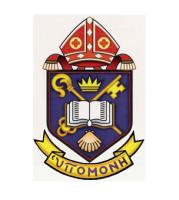| Language Policy |
All subjects are taught in English with the exception of Chinese Language, Chinese Literature, Chinese History, Life and Society, Citizenship and Social Development, Putonghua and Religious Studies. |
| Learning and Teaching Strategies |
Intellectual development: Teachers use various teaching strategies to raise students' ability and interest in handling different subjects. Students are encouraged to develop their potential through self-learning and joining the different competitions. Moral, civic and national education: This is integrated into the curriculum during lessons, form-teacher periods, morning assemblies and counselling/civic/national education activities. Physical education: It provides students with the principles and practice of different sports. Students actively participate in athletic meets, swimming gala and inter-school competitions. Social development: Through participation in various activities, students learn to cooperate, communicate, gain self-discipline and gradually develop a sense of belonging to the school. Aesthetic/Cultural Development: Apart from cultural subjects, activities such as drama and gardening are introduced to help students appreciate art & culture. Spiritual nourishment: Religious studies is a compulsory subject for all students. Morning prayer, weekly assemblies and Christian fellowship meetings help to promote the Christian tenets of faith and love. |
| School-based curriculum |
1. Electives: 2X and 3X. Allocation is based on students' choices and their academic results.<br> 2. Curriculum highlights: Curriculum adaptation and worksheet differentiation are done in every subject to cater for students' diverse abilities. Peer tutoring is carried out on a school basis, various activities are organized. To develop students' generic skills and widen their scope of learning. |
| Approach to Catering for Learner Diversity |
Junior form students are allocated into different classes according to their abilities. On top of the core topics, challenging projects are given to the more capable students, while in certain classes some subjects are taught in groups so that teachers can give more attention to individual students. <br>Extra lessons are given to different groups of students in senior forms to help them face the public exams. The Guidance Team and the ECA Committee cooperate to design programmes to cater for students' diverse needs and abilities. |
| Approach to Integrated Education |
Our school adopts "Whole School Approach" to support students with special educational needs in order to enhance students' learning effectiveness and help them integrate into school life. The Student Support Team is coordinated by the SENCO to examine the planning and development of the school's Integrated Education. Members include counselling teachers, social workers, school-based Speech Therapist and Educational Psychologist to develop support policies. To support students with special educational needs, the School has been allocated “Learning Support Grant” as additional resource by the Education Bureau to provide the following support measures:<br>1. Refer students who are suspected of having special education needs to make case assessments and update cases. <br>2. Special examination and assessment arrangements for students with special educational needs, including provision of extra exam time, enlargement of test papers and support for examinations with screen-reading software, and applying special examination arrangements for students for their public examinations. <br>3. Find various kinds of service providers to offer students with individual or group treatments, such as "speaking skills training", "social skill training", "emotional therapy" etc.<br>4. The Individual Education Plan is designed for students with special education needs. The class teacher, the subject teachers, the Education Psychologist, the social worker and the parents will jointly formulate the support plan, curriculum and teaching adjustment, regular review and follow-up progress. <br>5. Arrange different kinds of remedial learning groups to prepare students for the examination. <br>6. Teaching assistants are employed to support students with special educational needs outside the classroom. |
| Education Support for Non-Chinese Speaking (NCS) Students |
|
| Home-School Co-operation |
The PTA has become a well-developed integral part of the School. The parent executives are supportive. We especially value the contribution of parent volunteers who help to take care of many student affairs, which effectively lightens teachers' workload. The Parent Resources Centre has highly facilitated the work of PTA and provided a convenient gathering and meeting place for the parents. Talks on parenthood, interest classes for parents, sharing sessions and recreational activities are organized every year. |
| School Ethos |
There are various activities and programmes in school to help students develop interpersonal relationships, Christian faith, proper social values and a high standard of conduct. The school emphasizes 'Character formation'. It aims to enhance student development in a caring and supportive way based on Christian love. Through activities, workshops and seminars students learn not only to show trust and respect for each other, but also heighten self-esteem with a positive attitude towards life. |
| School Development Plan |
1. Enhancing learning and teaching<br>2. Character formation<br>3. Resources and Network Building |
| Teacher Professional Training and Development |
To keep up with the education reforms and to raise professional standards, teachers are required to pursue continuous professional development, attending appropriate courses & seminars. On staff development days, seminars & talks by professionals and experts are organized to update teachers on the latest educational developments. The Staff Development Committee assists new teachers to adapt to the teaching environment in the school and help them to further improve their skills in teaching. |
| Life-wide Learning |
To strengthen cooperation and communication among peers, the school encourages students to participate in different ECA clubs and societies. In addition to holding moral, civic and national education activities, cross curriculum / cross discipline activities like the Annual Inter-house Quiz and the English Carnival are organized to enhance the learning experience of our students.<br>The ECA clubs in our schools include:<br>Academic Societies: English, Chinese, Mathematics, Science, Geography, History, Economics, Putonghua, STEM, Debating.<br>Interest Groups: Drama, Music, Chess, Dance, Art, Film, Lion dance, Japanese Culture. <br>Service: Student Ambassadors, Flag Squad, Volunteers of TSK, Community Youth Club, Scouts, St. John's Ambulance Combined Cadets.<br>Sports Clubs: Basketball, Badminton, Football, Volleyball, Table Tennis, Athletics, Squash, Swimming, Tennis, Rope-skipping, Ten-pin Bowling, Cross Country etc. |
